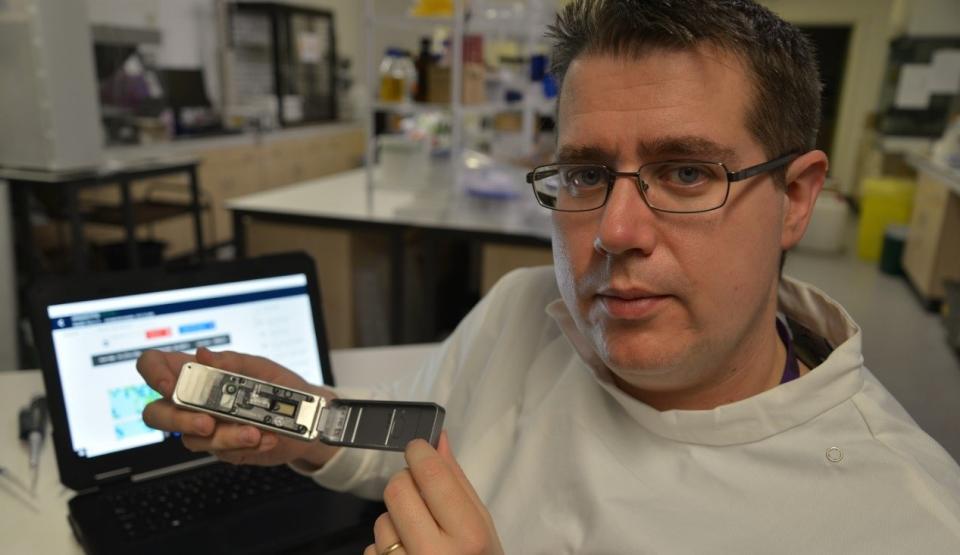
How international collaborations are supporting the fight against COVID-19
Universities across Wales have been continuing to support their local communities and the national effort during the coronavirus pandemic. They have also been working with international partners to aid in the global response to the virus.
4 May 2020
By utilising their international networks, universities have been able to share vital expertise and knowledge to create innovative ways of responding to the pandemic, and not just for our own benefit here in the UK, but in support of lower income countries too.
Staff from Swansea University Medical School have been speaking to partners in Wuhan Union Hospital to learn from their experiences during the pandemic. The University opened a joint medical centre two years ago to promote clinical and life sciences research, and to build student and staff exchanges and collaborations. Those connections led to a successful conference call which gave Welsh clinicians, currently at the forefront of the battle against the pandemic, a chance to exchange experiences and learn from staff who dealt with COVID-19 at its earliest stages. The conference call was organised by head of the Medical School, Professor Keith Lloyd and Professor Richard Evans, Executive Medical Director at Swansea Bay University Health Board, and it is now hoped it will go on to trigger further co-operation as the pandemic continues.
Researchers at Cardiff Metropolitan University School of Technologies are investigating how COVIDー19 is spreading. The team is using weather data, for example, from six countries to model and predict the future spread of the virus.
Researchers from Aberystwyth University are working on a technique to improve testing for the Coronavirus in low income countries. Countries in South America and Asia do not have access to labs and expensive specialist equipment, and researchers at the university have been developing portable tools that could be used in such places. Dr Arwyn Edwards, Senior Lecturer in Biology at the Institute of Biological, Environmental and Rural Sciences (IBERS) at Aberystwyth University, has been experimenting with these potential alternative testing methods. The research is organised and funded by Centre for International Development Research at the university through the Higher Education Funding Council for Wales’ Global Challenges Research Fund. As part of the project, the research is drawing upon the expertise of colleagues across Aberystwyth University, working with established networks of international partners and experts in computational biology and respiratory disease.
At the Centre for the Enhancement of Learning and Teaching (CELT) at the University of South Wales, Dr Cath Camps is working with the Council for At-Risk Academics (CARA) by developing online Special Interest Groups for those working in the Arts and Humanities in Turkish and Syrian Universities. USW has been a supporter of CARA for many years. Current activity is focused around a new strand of activity funded by the Mellon Foundation to support Syrian Arts and Humanities academics. Usually this work is undertaken by on-line support with face-to-face workshops held in Istanbul. However, during the current COVID-19 pandemic this work is being transferred wholly on-line. Additionally, USW is currently undertaking much work in order to enable Syrian academics to have access to e-resources in order to enable them to maintain contact with the international research community. This project is helping sustain connectivity for this group of fellow scholars during the crisis.
Scientists at Bangor University are pooling their expertise with scientists from across the globe to develop new ways of mass-monitoring levels of the virus in wastewater. Professor Davey Jones is leading the research group to test for the virus using wastewater which will provide a powerful indicator of disease incidence at any point in time. This will enable the team to provide near real-time information on the incidence of covid-19 within the UK population. In the long term, this method can be used to monitor human illness-causing viruses. The data can then be provided to bodies such as national government, NHS, Public Health England and Wales and water companies. They will then be able to make informed decisions on disease control and respond and adapt to potential future disease epidemics.
Forty-two researchers from around the world, including Professor Ann John, Deputy Head of Swansea University Medical School, have formed the International COVID-19 Suicide Prevention Research Collaboration. There is a growing concern about the far-reaching impact Covid-19 may have on people’s mental health across the globe. The actions range from supporting those who are lonely and vulnerable including those on the frontline, young people and the bereaved to responsible media reporting and economic policy. The global group of experts have said that pandemic will cause distress and leave many vulnerable, but the research evidence can provide a strong basis for suicide prevention with the support from international collaboration.
International links that universities have spent years developing have proved invaluable at this crucial time. These long-standing relationships show how collaborative projects are a valuable opportunity to gain real insight and support both during and after this pandemic.
